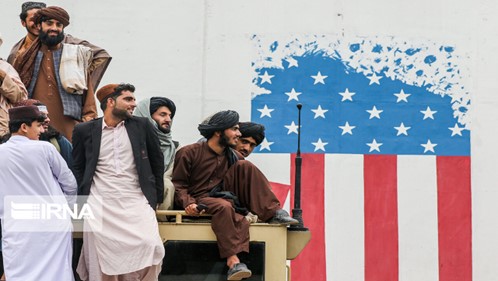Article: The Taliban is more of a variable dependent on others that have shaped these tensions by proxy.
Jahan News – Abolfazl Zohrevand: On the one hand, the recent border tensions with the Taliban are due to the nature of this group and the Taliban’s disregard for border laws, as well as internal mischief within the Taliban, and on the other hand, some international actors, including the United States and England, are calling for military tension between Iran and Taliban. At the same time, the root of these differences is beyond Hirmand water.
We need a time process to solve the issue of Iran’s claim because this issue was created in a time process, and the Taliban have been building sub-channels and poppy cultivation in the past months. Although the Kamal Khan dam was built during Ashraf Ghani and Hamid Karzai’s period according to the advice of the British, it was exploited during the Taliban period, and this group closed the sources of this diversion dam and diverted a part of it to the Gud Zare salt marsh.
The appearance of the story is that the recent tensions were due to the water cut, but the reality is that the Americans are looking for more tension. Also, it is possible to re-establish Iran’s claim in the Hirmand River in a time process. But it cannot be pursued legally because the Taliban is not a recognized group or a legal government. They are considered more of a military and political movement. On the other hand, the military confrontation with the Taliban is not working either, and the Americans are very much looking to shape this military confrontation; however, in recent days, the tension on the border has decreased, and some border terminals have been activated.
Of course, Iran’s hands are not tied in this tension. Tehran has the necessary tools to respond to the Taliban. Afghanistan receives fuel from Iran. 75% of fuel imports are officially supplied to Afghanistan. It is time-consuming and expensive for Afghanistan to provide the fossil energy from Pakistan, and Afghanistan’s other neighbors do not have fuel to provide to the Taliban. Therefore, with political, economic, and military levers, Iran can end the adventure of the Taliban.
The current tensions with the Taliban were formed outside of the group’s will and under the influence of political and geopolitical developments in the region. Therefore, the Taliban is more of a variable dependent on others that have shaped these tensions by proxy. To find the roots of these tensions, we must pay attention to the regional international actors that look for tension in this area and are trying to disrupt the geopolitical order of it.
At one end of these tensions are the United States and England, and at the opposite end of this conflict are the countries of Russia, China, and Iran. Americans are creating tension to disrupt the 3-nation alliance of Iran, China, and Russia, and the Taliban has the necessary component to create tension in the region. The tension and the current level of the game are beyond the size and stature of the Taliban. The main issue is facing the international actors, which the global actors are trying to prevent the collapse of the unipolar system and the creation of a multipolar world by creating tension in the region to the detriment of Russia, China, and Iran.
Abolfazl Zohrevand is the former ambassador of Iran to Afghanistan
 Mouood Mouood English Edition
Mouood Mouood English Edition




